











|
Panel Sessions
Session 1: Nuclear Power System PHM
Panel Moderator:
Dr. Jamie Coble, University of Tennessee, USA
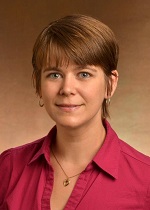
Panelists:
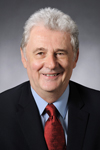 Dr. Leonard J. Bond is Director of the Center for Nondestructive Evaluation (CNDE), and Professor, Aerospace and Mechanical Engineering, Iowa State University. His research is focused on topics in ultrasonics and more widely in nondestructive evaluation and material state assessment. He has a Ph.D. in Physics from City University London for a thesis on “Surface cracks and their characterization using Rayleigh waves.” Before joining ISU in 2012, he was a Laboratory Fellow, at the Pacific Northwest National Laboratory. Prior to this, he had held various positions including founding Director, Center for Advanced Energy Studies, Idaho National Laboratory; Research Professor, University of Colorado; Boulder, Chief Scientist, University of Denver Research Institute; and Research Professor, Department of Engineering, University of Denver. Before moving to the USA, he had held a series of faculty positions at University College London, including Reader in Ultrasonics. He is the author of more than 300 papers and has 10 patents. He is also President, QNDE Programs which organizes the Annual Review of Progress in Quantitative NDE. He is a Fellow, Institute of Physics (UK), and Fellow, American Association Advancement Science. Dr. Leonard J. Bond is Director of the Center for Nondestructive Evaluation (CNDE), and Professor, Aerospace and Mechanical Engineering, Iowa State University. His research is focused on topics in ultrasonics and more widely in nondestructive evaluation and material state assessment. He has a Ph.D. in Physics from City University London for a thesis on “Surface cracks and their characterization using Rayleigh waves.” Before joining ISU in 2012, he was a Laboratory Fellow, at the Pacific Northwest National Laboratory. Prior to this, he had held various positions including founding Director, Center for Advanced Energy Studies, Idaho National Laboratory; Research Professor, University of Colorado; Boulder, Chief Scientist, University of Denver Research Institute; and Research Professor, Department of Engineering, University of Denver. Before moving to the USA, he had held a series of faculty positions at University College London, including Reader in Ultrasonics. He is the author of more than 300 papers and has 10 patents. He is also President, QNDE Programs which organizes the Annual Review of Progress in Quantitative NDE. He is a Fellow, Institute of Physics (UK), and Fellow, American Association Advancement Science.
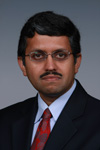 Dr. Pradeep Ramuhalli has worked on R&D in the general area of measurement systems reliability for over 15 years, with a particular focus on non-invasive and nondestructive measurements. Dr. Ramuhalli has a PhD in electrical engineering from Iowa State University. Prior to joining PNNL, he was an assistant professor at Michigan State University. His research over the years has spanned multiple technical areas, and includes acoustic sensor design for in-situ monitoring, integrated system health monitoring and prognostics, inverse problems, multisensor data fusion, numerical methods, and image/signal processing. Applications of his research have been in assessing the reliability and integrity of critical systems in nuclear power plants, homeland security, and nonproliferation and arms control. Currently, he is developing acoustic and electromagnetic sensors and algorithms for reliable continuous online monitoring of stressors and systems in extreme environments, online assessment of sensor calibration for process control, prognostics algorithms to assess remaining useful life and risk of continued operation with degradation in critical systems, and methodologies to assure resilience of degraded systems. Dr. Ramuhalli has published over 150 peer-reviewed journal and conference papers and technical reports. He is a senior member of IEEE, and a member of ANS, Phi Kappa Phi and Sigma Xi. Dr. Pradeep Ramuhalli has worked on R&D in the general area of measurement systems reliability for over 15 years, with a particular focus on non-invasive and nondestructive measurements. Dr. Ramuhalli has a PhD in electrical engineering from Iowa State University. Prior to joining PNNL, he was an assistant professor at Michigan State University. His research over the years has spanned multiple technical areas, and includes acoustic sensor design for in-situ monitoring, integrated system health monitoring and prognostics, inverse problems, multisensor data fusion, numerical methods, and image/signal processing. Applications of his research have been in assessing the reliability and integrity of critical systems in nuclear power plants, homeland security, and nonproliferation and arms control. Currently, he is developing acoustic and electromagnetic sensors and algorithms for reliable continuous online monitoring of stressors and systems in extreme environments, online assessment of sensor calibration for process control, prognostics algorithms to assess remaining useful life and risk of continued operation with degradation in critical systems, and methodologies to assure resilience of degraded systems. Dr. Ramuhalli has published over 150 peer-reviewed journal and conference papers and technical reports. He is a senior member of IEEE, and a member of ANS, Phi Kappa Phi and Sigma Xi.
 Dr. Vivek Agarwal is a Research Scientist at Idaho National Laboratory. His current and past major research accomplishments can be categorized into following domains namely, Instrumentation and Control System Technologies; Data Analytics; Wireless Sensor Technologies; Online Risk. Monitoring; and Diagnostic and Prognostic Modeling. He received his Ph.D. in Nuclear Engineering from Purdue University, M.S. in Electrical Engineering from The University of Tennessee, Knoxville, and B.E. in Electrical Engineering from University of Madras, India. He is the recipient of the 2016 Laboratory Director Early Career Achievement Award. He has published 11 peer-reviewed journals and 36 conference articles. He has one provisional patent and one invention disclosure. He is a Section Editor for the Journal of Pattern Recognition Research. Dr. Vivek Agarwal is a Research Scientist at Idaho National Laboratory. His current and past major research accomplishments can be categorized into following domains namely, Instrumentation and Control System Technologies; Data Analytics; Wireless Sensor Technologies; Online Risk. Monitoring; and Diagnostic and Prognostic Modeling. He received his Ph.D. in Nuclear Engineering from Purdue University, M.S. in Electrical Engineering from The University of Tennessee, Knoxville, and B.E. in Electrical Engineering from University of Madras, India. He is the recipient of the 2016 Laboratory Director Early Career Achievement Award. He has published 11 peer-reviewed journals and 36 conference articles. He has one provisional patent and one invention disclosure. He is a Section Editor for the Journal of Pattern Recognition Research.
 Randall (Randy) Bickford is a recognized worldwide expert in predictive analytics for asset health management and prognostics. He is one of the industry’s pioneers and holds multiple patents in the areas of pattern recognition, fault detection, diagnostics, and prognostics. He is a principal architect and developer of Expert Microsystems’ SureSense® software suite, which is deployed for predictive asset health management in the electric power generation, aerospace, military, cyber security, electronic and industrial process control industries. Randall (Randy) Bickford is a recognized worldwide expert in predictive analytics for asset health management and prognostics. He is one of the industry’s pioneers and holds multiple patents in the areas of pattern recognition, fault detection, diagnostics, and prognostics. He is a principal architect and developer of Expert Microsystems’ SureSense® software suite, which is deployed for predictive asset health management in the electric power generation, aerospace, military, cyber security, electronic and industrial process control industries.
Randy recently led development of the Fleet-wide Prognostics and Health Management Suite software, a web-based, enterprise-scale platform for predictive asset health management at nuclear and non-nuclear power utilities. Randy is now leading development of a comprehensive database of power plant asset fault signatures for use in this platform with sponsorship from the Electric Power Research Institute’s Plant Health Management Users Group.
Prior to founding Expert Microsystems, Randy worked in the aerospace industry. At Aerojet, a rocket engine manufacturer, Randy was responsible for managing Space Propulsion Avionics product lines, including fault tolerant engine controllers and actuators, advanced instrumentation systems, and diagnostic monitoring systems. Prior to this, he was Manager of Controls Engineering.
___________________________________________________________________________________________
Session 2: Methods to Improve Li-ion Battery Performance
Panel Moderator:
Rui Zhao, Carleton University, Canada
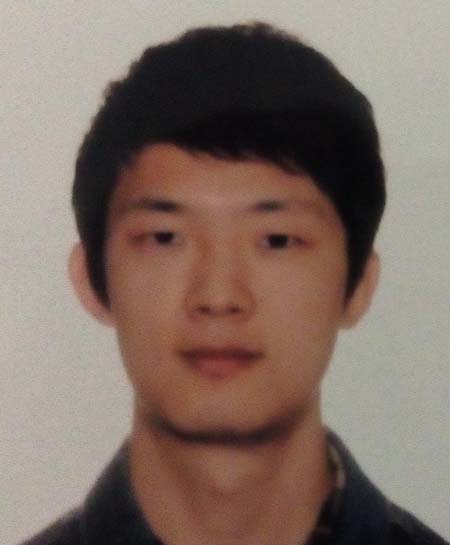
Panelists:
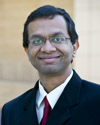 Dr. Ankur Jain is an Assistant Professor in the Mechanical and Aerospace Engineering Department at the University of Texas, Arlington where he directs the Microscale Thermophysics Laboratory. He is the recipient of the NSF CAREER Award (2016), UTA College of Engineering Outstanding Early Career Award (2017) and the ASME EPP Division Young Engineer of the Year Award (2013). His research interests include modeling and measurements of thermal transport in Li-ion batteries, microscale heat transfer, thermal management, etc. He received his Ph.D. (2007) and M.S. (2003) in Mechanical Engineering from Stanford University, and his B.Tech. (2001) in Mechanical Engineering from the Indian Institute of Technology (IIT), Delhi with top honors. His research and education activities have been supported by National Science Foundation (NSF), Department of Energy (DoE), Office of Naval Research (ONR), Indo-US Science & Technology Forum (IUSSTF), etc. Dr. Ankur Jain is an Assistant Professor in the Mechanical and Aerospace Engineering Department at the University of Texas, Arlington where he directs the Microscale Thermophysics Laboratory. He is the recipient of the NSF CAREER Award (2016), UTA College of Engineering Outstanding Early Career Award (2017) and the ASME EPP Division Young Engineer of the Year Award (2013). His research interests include modeling and measurements of thermal transport in Li-ion batteries, microscale heat transfer, thermal management, etc. He received his Ph.D. (2007) and M.S. (2003) in Mechanical Engineering from Stanford University, and his B.Tech. (2001) in Mechanical Engineering from the Indian Institute of Technology (IIT), Delhi with top honors. His research and education activities have been supported by National Science Foundation (NSF), Department of Energy (DoE), Office of Naval Research (ONR), Indo-US Science & Technology Forum (IUSSTF), etc.
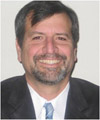 Dr. Antonio Ginart received his B.Sc. and MSc in EE from Simon Bolivar University in 1986 and 1991, respectively, and his Ph.D. from Georgia Tech in 2001. He served as faculty at Simon Bolivar University for over 10 years. He was principal and founder of Intelligent Automation Systems, later acquired by Impact Technologies where he became senior lead engineer developing dynamic degradation models and methods for power devices, and fault tolerant techniques for extended operation of power controllers in modern power systems. At SolarMax, he was lead R&D engineer, where he worked developing solar inverters with innovative topologies and controls aimed to delivering reliable and economical solar energy to the smart grid. Currently, he is principal engineer at Sonnen developing the next generation of grid tied battery storage. Dr. Ginart is a senior member of the IEEE and Affiliate Faculty Member in the College of Engineering at the University of Georgia. He also has acted as principal investigator on several NASA/DOD SBIR grants. His research has led to near 100 publications and patents. Dr. Antonio Ginart received his B.Sc. and MSc in EE from Simon Bolivar University in 1986 and 1991, respectively, and his Ph.D. from Georgia Tech in 2001. He served as faculty at Simon Bolivar University for over 10 years. He was principal and founder of Intelligent Automation Systems, later acquired by Impact Technologies where he became senior lead engineer developing dynamic degradation models and methods for power devices, and fault tolerant techniques for extended operation of power controllers in modern power systems. At SolarMax, he was lead R&D engineer, where he worked developing solar inverters with innovative topologies and controls aimed to delivering reliable and economical solar energy to the smart grid. Currently, he is principal engineer at Sonnen developing the next generation of grid tied battery storage. Dr. Ginart is a senior member of the IEEE and Affiliate Faculty Member in the College of Engineering at the University of Georgia. He also has acted as principal investigator on several NASA/DOD SBIR grants. His research has led to near 100 publications and patents.
 Dr. Guangsheng Zhang is currently a Research Associate in the Electrochemical Engine Center (ECEC), the Battery and Energy Storage Technology (BEST) Center, and Department of Mechanical & Nuclear Engineering at The Pennsylvania State University, University Park. His research focuses on in situ diagnosis and thermal & safety management of Li-ion batteries and fuel cells. He has published 24 papers in peer-reviewed journals, including Nature, Scientific Reports, Electrochimica Acta, Journal of Power Sources, Journal of The Electrochemical Society, etc. More information about his publications can be found from his Google Scholar Profile (https://scholar.google.com/citations?user=p3eW1xgAAAAJ&hl=en). Dr. Guangsheng Zhang is currently a Research Associate in the Electrochemical Engine Center (ECEC), the Battery and Energy Storage Technology (BEST) Center, and Department of Mechanical & Nuclear Engineering at The Pennsylvania State University, University Park. His research focuses on in situ diagnosis and thermal & safety management of Li-ion batteries and fuel cells. He has published 24 papers in peer-reviewed journals, including Nature, Scientific Reports, Electrochimica Acta, Journal of Power Sources, Journal of The Electrochemical Society, etc. More information about his publications can be found from his Google Scholar Profile (https://scholar.google.com/citations?user=p3eW1xgAAAAJ&hl=en).
Return to conference program
|
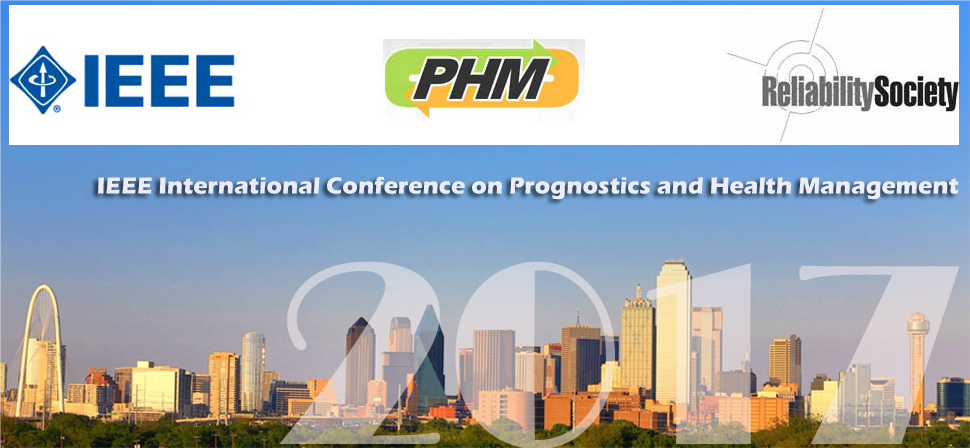

 Dr. Leonard J. Bond is Director of the Center for Nondestructive Evaluation (CNDE), and Professor, Aerospace and Mechanical Engineering, Iowa State University. His research is focused on topics in ultrasonics and more widely in nondestructive evaluation and material state assessment. He has a Ph.D. in Physics from City University London for a thesis on “Surface cracks and their characterization using Rayleigh waves.” Before joining ISU in 2012, he was a Laboratory Fellow, at the Pacific Northwest National Laboratory. Prior to this, he had held various positions including founding Director, Center for Advanced Energy Studies, Idaho National Laboratory; Research Professor, University of Colorado; Boulder, Chief Scientist, University of Denver Research Institute; and Research Professor, Department of Engineering, University of Denver. Before moving to the USA, he had held a series of faculty positions at University College London, including Reader in Ultrasonics. He is the author of more than 300 papers and has 10 patents. He is also President, QNDE Programs which organizes the Annual Review of Progress in Quantitative NDE. He is a Fellow, Institute of Physics (UK), and Fellow, American Association Advancement Science.
Dr. Leonard J. Bond is Director of the Center for Nondestructive Evaluation (CNDE), and Professor, Aerospace and Mechanical Engineering, Iowa State University. His research is focused on topics in ultrasonics and more widely in nondestructive evaluation and material state assessment. He has a Ph.D. in Physics from City University London for a thesis on “Surface cracks and their characterization using Rayleigh waves.” Before joining ISU in 2012, he was a Laboratory Fellow, at the Pacific Northwest National Laboratory. Prior to this, he had held various positions including founding Director, Center for Advanced Energy Studies, Idaho National Laboratory; Research Professor, University of Colorado; Boulder, Chief Scientist, University of Denver Research Institute; and Research Professor, Department of Engineering, University of Denver. Before moving to the USA, he had held a series of faculty positions at University College London, including Reader in Ultrasonics. He is the author of more than 300 papers and has 10 patents. He is also President, QNDE Programs which organizes the Annual Review of Progress in Quantitative NDE. He is a Fellow, Institute of Physics (UK), and Fellow, American Association Advancement Science. Dr. Pradeep Ramuhalli has worked on R&D in the general area of measurement systems reliability for over 15 years, with a particular focus on non-invasive and nondestructive measurements. Dr. Ramuhalli has a PhD in electrical engineering from Iowa State University. Prior to joining PNNL, he was an assistant professor at Michigan State University. His research over the years has spanned multiple technical areas, and includes acoustic sensor design for in-situ monitoring, integrated system health monitoring and prognostics, inverse problems, multisensor data fusion, numerical methods, and image/signal processing. Applications of his research have been in assessing the reliability and integrity of critical systems in nuclear power plants, homeland security, and nonproliferation and arms control. Currently, he is developing acoustic and electromagnetic sensors and algorithms for reliable continuous online monitoring of stressors and systems in extreme environments, online assessment of sensor calibration for process control, prognostics algorithms to assess remaining useful life and risk of continued operation with degradation in critical systems, and methodologies to assure resilience of degraded systems. Dr. Ramuhalli has published over 150 peer-reviewed journal and conference papers and technical reports. He is a senior member of IEEE, and a member of ANS, Phi Kappa Phi and Sigma Xi.
Dr. Pradeep Ramuhalli has worked on R&D in the general area of measurement systems reliability for over 15 years, with a particular focus on non-invasive and nondestructive measurements. Dr. Ramuhalli has a PhD in electrical engineering from Iowa State University. Prior to joining PNNL, he was an assistant professor at Michigan State University. His research over the years has spanned multiple technical areas, and includes acoustic sensor design for in-situ monitoring, integrated system health monitoring and prognostics, inverse problems, multisensor data fusion, numerical methods, and image/signal processing. Applications of his research have been in assessing the reliability and integrity of critical systems in nuclear power plants, homeland security, and nonproliferation and arms control. Currently, he is developing acoustic and electromagnetic sensors and algorithms for reliable continuous online monitoring of stressors and systems in extreme environments, online assessment of sensor calibration for process control, prognostics algorithms to assess remaining useful life and risk of continued operation with degradation in critical systems, and methodologies to assure resilience of degraded systems. Dr. Ramuhalli has published over 150 peer-reviewed journal and conference papers and technical reports. He is a senior member of IEEE, and a member of ANS, Phi Kappa Phi and Sigma Xi.  Dr. Vivek Agarwal is a Research Scientist at Idaho National Laboratory. His current and past major research accomplishments can be categorized into following domains namely, Instrumentation and Control System Technologies; Data Analytics; Wireless Sensor Technologies; Online Risk. Monitoring; and Diagnostic and Prognostic Modeling. He received his Ph.D. in Nuclear Engineering from Purdue University, M.S. in Electrical Engineering from The University of Tennessee, Knoxville, and B.E. in Electrical Engineering from University of Madras, India. He is the recipient of the 2016 Laboratory Director Early Career Achievement Award. He has published 11 peer-reviewed journals and 36 conference articles. He has one provisional patent and one invention disclosure. He is a Section Editor for the Journal of Pattern Recognition Research.
Dr. Vivek Agarwal is a Research Scientist at Idaho National Laboratory. His current and past major research accomplishments can be categorized into following domains namely, Instrumentation and Control System Technologies; Data Analytics; Wireless Sensor Technologies; Online Risk. Monitoring; and Diagnostic and Prognostic Modeling. He received his Ph.D. in Nuclear Engineering from Purdue University, M.S. in Electrical Engineering from The University of Tennessee, Knoxville, and B.E. in Electrical Engineering from University of Madras, India. He is the recipient of the 2016 Laboratory Director Early Career Achievement Award. He has published 11 peer-reviewed journals and 36 conference articles. He has one provisional patent and one invention disclosure. He is a Section Editor for the Journal of Pattern Recognition Research. Randall (Randy) Bickford is a recognized worldwide expert in predictive analytics for asset health management and prognostics. He is one of the industry’s pioneers and holds multiple patents in the areas of pattern recognition, fault detection, diagnostics, and prognostics. He is a principal architect and developer of Expert Microsystems’ SureSense® software suite, which is deployed for predictive asset health management in the electric power generation, aerospace, military, cyber security, electronic and industrial process control industries.
Randall (Randy) Bickford is a recognized worldwide expert in predictive analytics for asset health management and prognostics. He is one of the industry’s pioneers and holds multiple patents in the areas of pattern recognition, fault detection, diagnostics, and prognostics. He is a principal architect and developer of Expert Microsystems’ SureSense® software suite, which is deployed for predictive asset health management in the electric power generation, aerospace, military, cyber security, electronic and industrial process control industries. 
 Dr. Ankur Jain is an Assistant Professor in the Mechanical and Aerospace Engineering Department at the University of Texas, Arlington where he directs the Microscale Thermophysics Laboratory. He is the recipient of the NSF CAREER Award (2016), UTA College of Engineering Outstanding Early Career Award (2017) and the ASME EPP Division Young Engineer of the Year Award (2013). His research interests include modeling and measurements of thermal transport in Li-ion batteries, microscale heat transfer, thermal management, etc. He received his Ph.D. (2007) and M.S. (2003) in Mechanical Engineering from Stanford University, and his B.Tech. (2001) in Mechanical Engineering from the Indian Institute of Technology (IIT), Delhi with top honors. His research and education activities have been supported by National Science Foundation (NSF), Department of Energy (DoE), Office of Naval Research (ONR), Indo-US Science & Technology Forum (IUSSTF), etc.
Dr. Ankur Jain is an Assistant Professor in the Mechanical and Aerospace Engineering Department at the University of Texas, Arlington where he directs the Microscale Thermophysics Laboratory. He is the recipient of the NSF CAREER Award (2016), UTA College of Engineering Outstanding Early Career Award (2017) and the ASME EPP Division Young Engineer of the Year Award (2013). His research interests include modeling and measurements of thermal transport in Li-ion batteries, microscale heat transfer, thermal management, etc. He received his Ph.D. (2007) and M.S. (2003) in Mechanical Engineering from Stanford University, and his B.Tech. (2001) in Mechanical Engineering from the Indian Institute of Technology (IIT), Delhi with top honors. His research and education activities have been supported by National Science Foundation (NSF), Department of Energy (DoE), Office of Naval Research (ONR), Indo-US Science & Technology Forum (IUSSTF), etc. Dr. Antonio Ginart received his B.Sc. and MSc in EE from Simon Bolivar University in 1986 and 1991, respectively, and his Ph.D. from Georgia Tech in 2001. He served as faculty at Simon Bolivar University for over 10 years. He was principal and founder of Intelligent Automation Systems, later acquired by Impact Technologies where he became senior lead engineer developing dynamic degradation models and methods for power devices, and fault tolerant techniques for extended operation of power controllers in modern power systems. At SolarMax, he was lead R&D engineer, where he worked developing solar inverters with innovative topologies and controls aimed to delivering reliable and economical solar energy to the smart grid. Currently, he is principal engineer at Sonnen developing the next generation of grid tied battery storage. Dr. Ginart is a senior member of the IEEE and Affiliate Faculty Member in the College of Engineering at the University of Georgia. He also has acted as principal investigator on several NASA/DOD SBIR grants. His research has led to near 100 publications and patents.
Dr. Antonio Ginart received his B.Sc. and MSc in EE from Simon Bolivar University in 1986 and 1991, respectively, and his Ph.D. from Georgia Tech in 2001. He served as faculty at Simon Bolivar University for over 10 years. He was principal and founder of Intelligent Automation Systems, later acquired by Impact Technologies where he became senior lead engineer developing dynamic degradation models and methods for power devices, and fault tolerant techniques for extended operation of power controllers in modern power systems. At SolarMax, he was lead R&D engineer, where he worked developing solar inverters with innovative topologies and controls aimed to delivering reliable and economical solar energy to the smart grid. Currently, he is principal engineer at Sonnen developing the next generation of grid tied battery storage. Dr. Ginart is a senior member of the IEEE and Affiliate Faculty Member in the College of Engineering at the University of Georgia. He also has acted as principal investigator on several NASA/DOD SBIR grants. His research has led to near 100 publications and patents. Dr. Guangsheng Zhang is currently a Research Associate in the Electrochemical Engine Center (ECEC), the Battery and Energy Storage Technology (BEST) Center, and Department of Mechanical & Nuclear Engineering at The Pennsylvania State University, University Park. His research focuses on in situ diagnosis and thermal & safety management of Li-ion batteries and fuel cells. He has published 24 papers in peer-reviewed journals, including Nature, Scientific Reports, Electrochimica Acta, Journal of Power Sources, Journal of The Electrochemical Society, etc. More information about his publications can be found from his Google Scholar Profile (
Dr. Guangsheng Zhang is currently a Research Associate in the Electrochemical Engine Center (ECEC), the Battery and Energy Storage Technology (BEST) Center, and Department of Mechanical & Nuclear Engineering at The Pennsylvania State University, University Park. His research focuses on in situ diagnosis and thermal & safety management of Li-ion batteries and fuel cells. He has published 24 papers in peer-reviewed journals, including Nature, Scientific Reports, Electrochimica Acta, Journal of Power Sources, Journal of The Electrochemical Society, etc. More information about his publications can be found from his Google Scholar Profile (